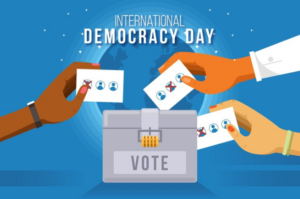The Definitive Guide to U.S. Citizenship: Top 10 Pros and Cons
Becoming a U.S. citizen is a life-changing decision that opens up a world of new opportunities. It’s a significant step that offers profound benefits, but also comes with new responsibilities. For anyone considering this path, a thorough understanding of the advantages and disadvantages is essential. This guide breaks down the top 10 pros and cons of U.S. citizenship to help you make an informed choice for your future.
What is a Naturalized U.S. Citizen?
Before diving into the pros and cons, let’s clarify what it means to be a naturalized U.S. citizen. A naturalized citizen is an individual who was not born in the United States but has gone through the legal process to acquire citizenship. This process, known as naturalization, involves meeting specific eligibility criteria, passing a civics and English test, and taking an Oath of Allegiance. Once the process is complete, a naturalized citizen enjoys almost all the same rights and responsibilities as a person born in the U.S.
Ready to Become a U.S. Citizen? Get Your FREE Guide & Document Checklist.
The Top 10 Benefits of U.S. Citizenship (Pros)
The path to citizenship is often motivated by a desire for security, opportunity, and the ability to participate fully in American society. Here are the most compelling benefits:

1. Permanent Legal Status and Peace of Mind:
The most significant advantage is the guarantee of permanent legal status. Unlike green card holders, U.S. citizens cannot be deported (except in extremely rare cases of fraud in the naturalization process). This offers unparalleled stability and security.
2. The Power of a U.S. Passport:
The U.S. passport is one of the most powerful travel documents in the world. It provides visa-free or visa-on-arrival access to over 180 countries, making international travel easier and more efficient. As a citizen, you can also seek assistance from U.S. embassies and consulates abroad.
3. The Right to Vote:
Citizenship gives you the fundamental right and the responsibility to vote in federal, state, and local elections. Consequently, this allows you to influence policies, elect leaders, and have a voice in the direction of your community and country.
4. Expanded Opportunities for Family:
U.S. citizens have more options and a faster process for sponsoring their family members—including parents, adult children, and siblings—for green cards. This makes it significantly easier to reunite with loved ones and build a life together in the U.S.
5. Access to Exclusive Federal Jobs:
Certain federal government jobs, particularly those involving national security, are exclusively available to U.S. citizens. These positions often come with strong job security, competitive salaries, and excellent benefits.
6. No More Green Card Renewals:
Citizenship is for a lifetime, meaning you never have to worry about renewing your status. This eliminates the fees, paperwork, and potential stress associated with renewing a green card every ten years.
7. Automatic Citizenship for Your Children:
If you become a U.S. citizen, your children born overseas may automatically become citizens. Therefore your family has the same rights and opportunities, often without having to go through a separate immigration process.
8. Greater Financial Aid Access:
Above all, citizens are eligible for a wider range of federal benefits, including Social Security, Medicare, and certain financial aid programs for education. This provides a crucial safety net for your retirement, health, and education goals.
9. Consular Protection:
Whether during crises, legal problems, or medical concerns, U.S. embassies and consulates around the globe help nationals in need. This provides peace of mind when traveling overseas, knowing that support is always accessible.
10. Enhanced Financial Opportunities:
Citizens can more easily access federal grants and loans and face fewer restrictions when starting and expanding businesses compared to green card holders. This financial adaptability can lead to greater security and prosperity.
The Top 10 Disadvantages of U.S. Citizenship (Cons)
While the benefits are many, it is crucial to understand the potential drawbacks before making a decision. Here are the top disadvantages:

1. Worldwide Tax Obligations:
A major disadvantage for many is that U.S. citizens are required to pay taxes on their worldwide income, regardless of where they live. Unfortunately, for those living and working abroad, this can lead to complex tax filings and, in some cases, double taxation.
2. The Loss of Your Previous Citizenship:
Depending on your home country’s laws, becoming a U.S. citizen may require you to renounce your previous citizenship. This can be a significant emotional and practical consideration for individuals who wish to maintain strong ties to their native country.
3. The Application Process is Rigorous:
The naturalization process can be long and complex. It involves extensive paperwork, fees (currently $760 as of 2024 for online filing), biometrics appointments, background checks, and a challenging interview and test. Also, the processing times can vary, sometimes taking years to complete.
4. Mandatory Jury Duty:
U.S. citizens are required to serve on a jury if called upon. While this is a civic duty, many find it to be a burden on their time and schedule. Green card holders do not have this obligation.
5. High Cost of Renunciation:
Should you ever decide to give up your U.S. citizenship in the future, the process is both complicated and expensive. In fact, this can involve significant legal fees and a renunciation tax, making the decision to become a citizen a highly permanent one.
6. Extended Waiting Times:
The naturalizing process could take several years, depending on your circumstances. A long wait both before and during application processing could be encountered by candidates. This can be frustrating for those eager to complete their citizenship journey.
7. Increased Scrutiny:
Being a U.S. citizen could mean extra federal monitoring, particularly if you run foreign businesses. Strict rules on banking abroad and investments apply in the United States, and residents have to follow these often restrictive guidelines.
8. Restricted Rights in Some Countries:
Geopolitical issues could cause limitations for Americans visiting or conducting business in some nations. For those with worldwide interests, this can restrict options and be among the less obvious disadvantages of U.S. citizenship.
9. Complexities of Dual Citizenship:
For those considering dual citizenship, managing obligations in two countries, tax filings, and legal responsibilities can be difficult and time-consuming. Legal disputes can result from this, particularly in nations that do not entirely accept dual nationality.
10. The Possibility of Losing Citizenship:
Though unusual, individuals can lose U.S. citizenship. This typically occurs if you voluntarily abandon it, engage in treason, or are found to have gained citizenship by fraud. Though rare, everyone should be aware of this risk.
The Final Decision: Is U.S. Citizenship Right for You?
The decision to apply for U.S. citizenship is deeply personal. Your unique circumstances, family situation, and future goals should all be considered. For many, the security, freedom, and opportunities that citizenship provides far outweigh the challenges. For others, particularly those who live abroad or wish to maintain dual citizenship, the tax and legal obligations can be a major factor.
This guide provides a starting point for your research, but the complexities of immigration law require professional guidance. Understanding the eligibility criteria, preparing the necessary documents, and navigating the application process can be overwhelming.
Ready to Start Your Journey to U.S. Citizenship?
Our team at Passage Immigration Law is dedicated to helping individuals and families achieve their American dream. We can help you:
- Assess your eligibility and create a personalized plan.
- Prepare and file all the required forms and documentation.
- Guide you through every step of the naturalization process.
Don’t go it alone. Let our experienced legal team provide the support and expertise you need for a smooth and successful application.
Schedule a consultation today or click here to learn more about our services.
Disclaimer:
- This article provides general legal information only and is not legal advice.
- Do not act on this information without consulting a qualified attorney about your specific situation.
- Every case is unique, and outcomes will vary.
- We are not responsible for actions taken based on the information in this article.
- To get legal advice, please contact us directly to speak with an attorney.







